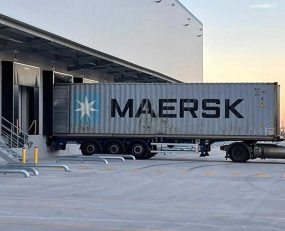
Maersk has announced record results in Q2 2022. Revenue increased by 52% and earnings more than doubled compared to same quarter last year. Results were driven by continued market conditions and sustained momentum from the strategic transformation focused on integrated logistics. Based on the strong performance in first half of 2022, Maersk has upgraded its guidance for the full year 2022. The results continue the recent successes of the company.
In Q2, revenue grew to $21.7bn, EBITDA and EBIT increased to $10.3bn and $9.0bn respectively, and free cash flow rose to $6.8bn. The Q2 net result came in at $8.6bn and $15.4bn for the first half of the year.
In Ocean freight, revenue grew to $17.4bn and EBIT increased to $8.5bn over the second quarter. The higher freight rates were partly offset by 7.4% lower volumes and by higher fuel, handling, and network costs. Although spot rates have softened from their peak earlier in the year, the company continued to sign contracts at rates above previous year levels given strong demand and continuing global supply chain congestion.
Maersk maintained its strong momentum in bringing integrated logistics solutions to customers. For the quarter, revenue in Logistics grew 61% to $3.5bn and EBIT increased to $234m mainly due to higher volumes from new customer wins and increased spending from existing customers. Maersk continued to invest in its logistics portfolio and capabilities; in Q2 the acquisitions of logistics specialist, Pilot Freight Services and the global air freight expert, Senator International were completed, and Maersk further strengthened its air freight offering by launching Maersk Air Cargo.
In Terminals, revenue grew to $1.1bn and EBIT increased to $316m, mainly driven by strong import demand in the United States and above market growth in Asia as well as higher storage income, which was however partly offset by higher costs.
Global demand for logistics services continued to moderate across global supply chains in Q2 2022. Freight rates softened marginally over the quarter but remained at a high level historically as supply chain congestion increased across the globe. Global container volume declined by 2.3% compared to Q2 2021 while global air cargo volumes (CTK) were 9.4% lower in April/May. Geopolitical uncertainty and higher inflation via higher energy prices continued to weigh on consumer sentiment and growth expectations.
Source: Maersk